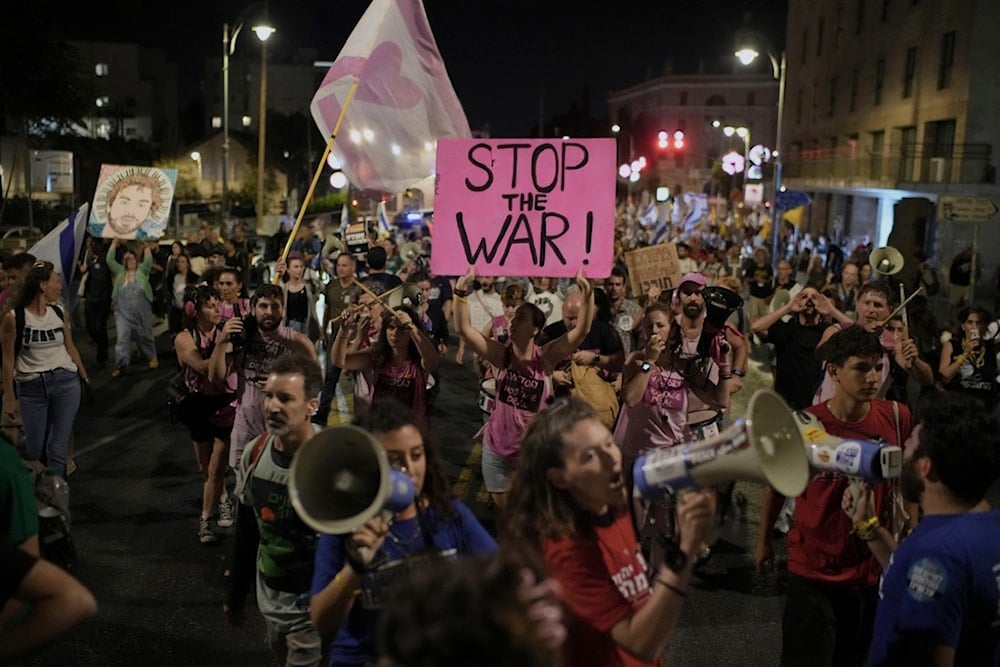Israeli police arrest 13 during protests demanding prisoner exchange
Israeli police detained 13 protesters in al-Quds as families of captives and opposition leaders intensified pressure on Netanyahu, accusing him of endangering captives' lives.
-

People take part in a protest demanding the immediate release of all captives and calling for the end of the war in the Gaza Strip, in occupied al-Quds, Wednesday, Sept. 3, 2025. (AP Photo)
Israeli police on Wednesday detained 13 demonstrators during protests in occupied al-Quds calling for the release of captives held in Gaza, even at the cost of ending the war now entering its 23rd month, Yedioth Ahronoth reports.
The families of the captives had earlier announced a one-day protest in the city, urging the government to accept a deal for their relatives’ return and to agree to a ceasefire. Demonstrations were staged outside Prime Minister Benjamin Netanyahu’s residence, as well as near the Knesset and government ministries. Protesters set fire to car tires and garbage containers near Netanyahu’s home, causing several vehicles to catch fire, the paper reported, citing police.
⚡️JUST IN:
— S2FUncensored (@S2FUncensored) September 3, 2025
Israeli settlers burn cars in occupied Jerusalem in protest against the ongoing war on Gaza. pic.twitter.com/kw1ICvvuxd
The families have repeatedly warned that prolonging the war directly endangers the lives of their relatives. Their demands have been amplified by tens of thousands of demonstrators in recent weeks, with protest movements such as the Hostages and Missing Families Forum staging nationwide rallies under the slogan "a deal or a death sentence."
Captives, protests, survival
Political opponents have seized on the growing unrest, accusing Netanyahu of deliberately obstructing a ceasefire and prisoner swap to preserve his political survival. Opposition leader Yair Lapid charged that Netanyahu is "sabotaging negotiations" by imposing new conditions, while former general Yair Golan argued that the prime minister is placing his own tenure above the lives of the captives and called for the government to be toppled.
Even within "Israel’s" security establishment, discontent is growing. "Israel's" Chief of Staff Eyal Zamir recently urged the cabinet to accept a partial deal, returning some captives in exchange for a 60-day ceasefire, warning that further escalation risks the remaining captives’ lives. Netanyahu rejected the proposal, insisting that military pressure must continue.
Read more: Israeli doctors block Ayalon highway, call for a captive exchange
As demonstrations intensify, Netanyahu faces accusations of placing his own political survival above the lives of captives, leaving the conflict without a clear path to resolution.

 2 Min Read
2 Min Read








